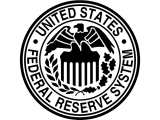Law Firm May Hinder Crisis Response by the U.S. Policy Makers
Post Views 0Federal Reserve Chairman Ben S. Bernanke and a few fellow U.S. policy makers may find themselves hampered in restoring the financial stability should the European debt crisis spread into America.
The Dodd-Frank legislation that was passed last year prohibits the Fed from engaging in rescues of individual financial firms, such as it did with Bear Sterns Cos. and the American International Group Inc. (AIG) during the 2008 financial crisis. The lawmakers also banned the Treasury Department from every again using an emergency reserve program to backstop money market funds. So now the Federal Deposit Insurance Corp. has to get Congressional approval before it can guarantee senior debt issued by the banks.
The investors ”don’t realize the extent to which Congress has tied people’s hands,” said Donald Kohn, who served as the vice chairman of the Fed from 2006 to 2010 and is now the senior economic strategist for Potomac Research Group in Washington, who is an independent research firm. ”There is less room to maneuver for the authorities.”
In passing Dodd-Frank, lawmakers sought to end government sought to end the government bailouts of financial institutions deemed to be much too big to fail. They beefed up their regulation of the industry, required banks to hold more capital and sought to discourage excessive risk-taking by curbing the ability of the federal government to rescue them from their mistakes.
Kohn said that the danger is that the legislation may have gone too far in limiting the leeway of the central bank and other policy makers to act in a financial meltdown. The result is that while crises may be less frequent that before, they may be much harder to contain once they occur.
”If you have a number of contagion problems all at once and are having liquidity problems, I worry that there isn’t enough play in the joints” to control that, said John Dugan, who is a former Comptroller of the Currency, and who is now a partner with Covington & Burling LLP in Washington.
Now the biggest risk is that Europe’s sovereign debt reduces trouble undermine the U.S. banking and financial system. The U.S. will not be able to ”escape the consequence of a blowup in Europe,” said Bernanke on Nov. 10. ”The world’s financial markets are highly interconnected.”
The U.S. stock prices have fallen this month, driven largely by concerns about the turmoil in Europe. At 11 a.m. in New York today, the Standard & Poor’s 500 Index fell 1185.81, down 5.4 percent for the month. Yesterday, Bank of America Corp. ended at $5.49, the lowest it’s been since March of 2009 and was trading at $5.45 at 11a.m. in New York today.
According to calculations on Oct. 25 by David Hensley, who is the director of global economics for JPMorgan Chase & Co. in New York, the U.S. banks have some 125.6 billion euros ($169.4 billion) in loans to Greece, Portugal, Spain, Ireland and Italy, equivalent to about 12.5 percent of their capital.
Law Firm May Hinder Crisis Response by the U.S. Policy Makers by Harrison Barnes



 Top Canadian Companies You Want to Work For
Top Canadian Companies You Want to Work For  Atlanta’s Top Telecom, Cell Phone, and Electronics Manufacturers
Atlanta’s Top Telecom, Cell Phone, and Electronics Manufacturers  Amazon May Have a Better Grasp on Workplace Culture
Amazon May Have a Better Grasp on Workplace Culture  Expected Changes in 2016 to the Workplace
Expected Changes in 2016 to the Workplace  Chicago’s Top Tech Companies
Chicago’s Top Tech Companies